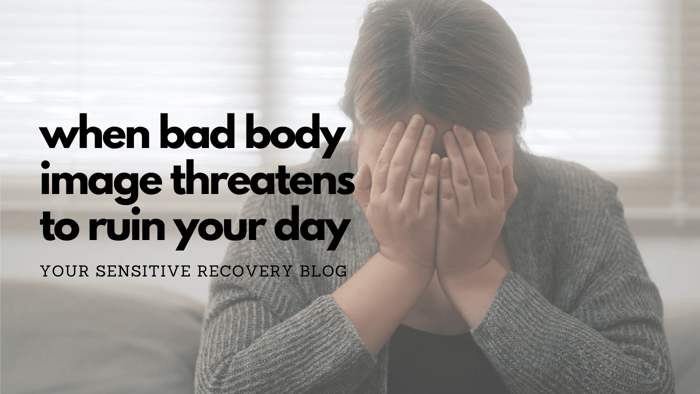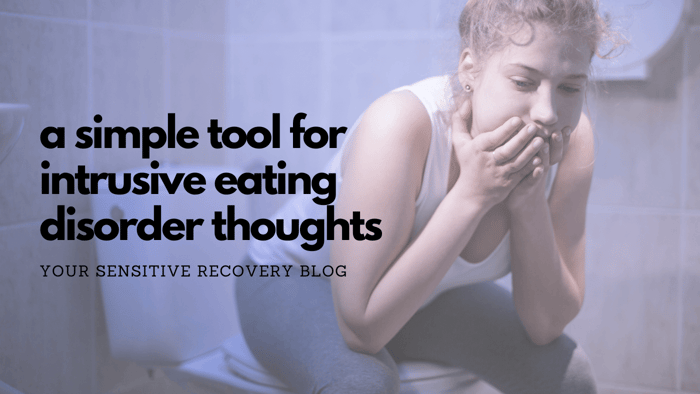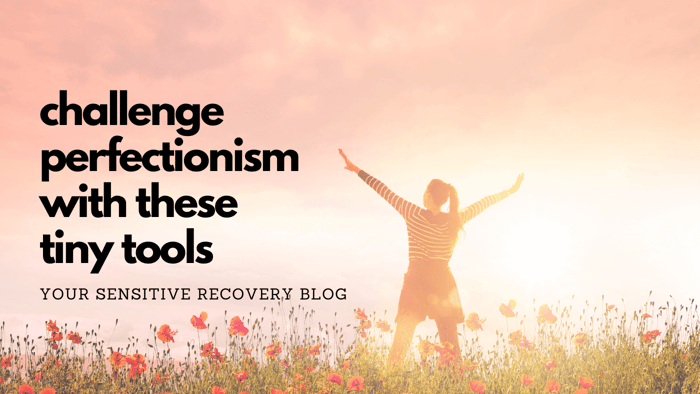To someone who has never experienced an eating disorder or something similar, dealing with urges might not seem like a difficult battle. If you have experienced or are experiencing one now, I'm sure you've heard plenty of well-meaning but incredibly minimizing suggestions that don't actually help your recovery at all...
You just need to eat a cheeseburger.
Why don't you eat when you're hungry and stop when you're full instead of binging?
If you don't want to purge anymore, just stop.
(Sigh.) These statements are painful. Easier said than done, obviously. Why? Because of just how powerful and complex urges can be.
What Exactly Are Urges and Why Do They Occur?
An urge is an incredibly seductive psychological, physiological, and emotional experience that can lead to someone engaging in damaging behaviors, even when they've decided they no longer want or can afford to do so.
Urges feel like demands; like there is an insatiable inner tyrant who is hell-bent on having a front-row seat to your self-destruction.Urges can occur for a variety of reasons. When it comes to eating disorders, here are some of the major ones:
- Recovery Ambivalence: Recovery is significantly challenging. Even if you feel mostly ready to let go of your eating disorder, there's likely another part of you that fears the change, the loss of a coping mechanism, and the process of facing difficult, underlying issues.
- Changes in the Brain: Complicated shifts in brain chemistry occur with behaviors like restricting, bingeing, or purging. Chemicals like serotonin and dopamine, involved in mood regulation and our brain's reward system are altered and support the formation of strong, yet unhealthy neural pathways in the brain. The saying "what fires together wires together" describes these pathways well. It's a lightning-fast process from feeling full to the urge to rid yourself of your meal, for example.
- Physical Deprivation: Our bodies are constantly striving for homeostasis - whether or not it's a state we accept (I'm talking about our natural weight and the amount of food needed to maintain it). The drive to satisfy hunger and correct specific nutrient deficiencies is intense. Malnutrition can also make it more difficult to break those unhelpful neural pathways described in number 2.
- Mental Deprivation: Even if individuals do not physically restrict nutrients, mental deprivation, in the form of stressful food thoughts (e.g. "I can't/shouldn't have this") or rigid rules, such as only eating during certain windows of time, can send the body into a state of hyperarousal and trigger urges and a general sense of insecurity.
When faced with these demanding emotion-sensation-thoughts, what can we do? Allow me to introduce...Urge Surfing.
What is Urge Surfing and How Do I Do It?
It may sound simple, but it's supposed to be! Urge Surfing is a mindful delay tactic modeled on the rise and fall of ocean waves.
Like a wave, urges rise up, crest, and fall, meaning the intensity of the experience will always ebb with time.Here's how to do it in 5 steps.
- Notice and label the urge. Observe it without judgment. If you criticize yourself for having the urge, it will only make things worse. Trust me. It's not your fault that an urge has surfaced.
- Recognize how specific thoughts or emotions are fueling the urge. For example, let's say the urge is triggered by the sensation of fullness. Take note of thoughts like, "I can't tolerate this" and the feelings of fear and panic.
- Rate the urge and set a timer for 10-20 minutes. On a scale of 1-10, rate how intense the urge feels in this very moment. Beginners may want to try for as little as 5 minutes if needed.
- Ride the Wave. The idea is to not just sit still and white-knuckle it through this time. If urge surfing is new to you, you may find distraction most helpful. Distraction is a legitimate coping tool, as long as it's not the only one you have. With practice, you can start to use this time to engage in mindfulness instead of distracting yourself. Use grounding tools to stay in the present moment and simply observe the wave.
- When the timer is up, re-rate your urge and reflect. If it still feels higher than you'd like, reset your timer and repeat step 4. If the urge has successfully passed (meaning if feels manageable and possible to ignore it), take a moment to reflect on the experience. Congratulate yourself for successfully riding the wave. Doing so helps reinforce this practice and strengthens your ability to handle future urges.
Tips for Better Surfing
- Change your environment by stepping outside or moving to a different room.
- Use a mantra like, "This too shall pass."
- Remind yourself of the long-term consequences. Is the momentary satisfaction of giving into the urge worth it?
- In the beginning, it's still a success to delay an urge even if you end up engaging in the behavior later on. I often tell my clients who are new to recovery to even give themselves permission to engage in the behavior after 10 or 20 minutes if they really still feel they must. The win is that you demonstrated to yourself that you CAN ride the wave at least for a bit. And that's awesome.
Why Facing Urges Is Important
In recovery, urges are a natural part of the healing process. They will and must happen in recovery. Each time you successfully face an urge without giving in, you build your recovery resilience.
By consciously facing urges, you can gain insight into what triggers them, and this is imperative in recovery because it shows you what you need to explore further and where you may need more support.
Remember, your urges are not demands you HAVE to meet.
Use the powerful technique of Urge Surfing to help you gain control over those seemingly uncontrollable impulses and make recovery-oriented choices that will benefit you now and in the long term.
Surf's Up! 🏄♀️
✨ Josie Munroe, LMFT is a licensed therapist and owner of JosieMunroe.com and Your Sensitive Recovery As a recovered clinician and Highly Sensitive Person, she loves supporting others on their journeys to form new, empowered relationships with food, their bodies, and their sensitivity. Join the newsletter for a weekly boost of hope and inspiration. You deserve a recovery that works for you! ✨





